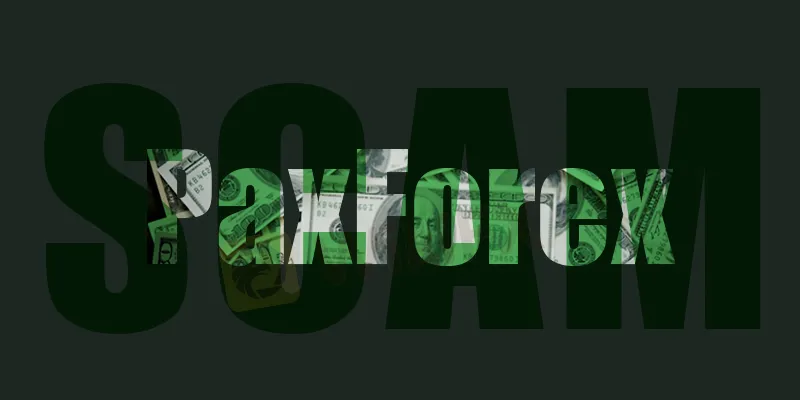简体中文
繁體中文
English
Pусский
日本語
ภาษาไทย
Tiếng Việt
Bahasa Indonesia
Español
हिन्दी
Filippiiniläinen
Français
Deutsch
Português
Türkçe
한국어
العربية
Scam Exposure: PaxForex Receives Critics for Withdrawal Issues
Abstract:People typically refer to forex trading when it comes to making quick money online. Undoubtedly, with a daily trading turnover of 6.3 trillion U.S. Dollars, the forex market offers countless opportunities for investors to generate handsome returns. However, being the world's most liquid market, it also becomes a hot spot for money stealers to come into play. On top of that, brokers like PaxForex can turn your trading journey into a horrible experience. Let us unleash why we believe PaxForex is a scam.

PaxForex.com - Overview
PaxForex is an offshore forex and CFD broker founded in 2011. The company is headquartered in St. Vincent and Grenadines. While clients can trade different financial instruments across various asset classes, including forex, indices, stocks, and spot metals, the option of social trading is also available at PaxForex. The company projects itself to be the market leader providing multiple account types, advanced trading features, and rich educational resources. However, the broker doesn't share any information concerning its regulation status on its website.
Is PaxForex Regulated?
No, PaxForex is not regulated anywhere in the world. The company claims to have been registered with St. Vincent and Grenadines Financial Services Authority, but it doesn't appear in the search result on the SVGFSA website. Moreover, St. Vincent and the Grenadines Financial Services Authority do not grant licenses to foreign exchanges or brokerage firms. Neither SVGFSA regulates nor monitors businesses engaged in such activities.

What do clients say about PaxForex.com?
PaxForex is one of the poorly rated companies we've reviewed so far. Investors repeatedly provide negative feedback on multiple social media and digital platforms, including BrokersView.
While clients complain about its trade execution policy, the company also receives critics for withdrawal issues. Let us share some screenshots.

What makes PaxForex a Scam Broker?
First, the company displays false information on its website concerning its registration with St. Vincent and Grenadines Financial Services Authority. For instance, it says PaxForex is a trading name of Laino Group register number 21973 IBC 2014. However, we couldn't find any entity appearing with this name on the SVGFSA website.

Secondly, the firm has been blacklisted by various regulators around the globe.

Lastly, the most prevalent proof of the broker being a scam entity is the seizure of the company's official domain www.PaxForex.com by the Federal Bureau of Investigation in line with the warrant issued by the United States District Court for the Southern District of Texas.

Not to mention, the company doesn't refrain from finding ways to scam clients. It keeps changing its domain names and continues its operations shamelessly. For instance, the broker is currently accessible on www.PaxForex.org.
Bottom line
Differentiating between a legit or a scam broker can be tricky, especially for newbies. However, some apparent signs can help you instantly spot a shabby broker. For instance, scam brokers do not have regulations from well-reputed regulatory authorities like FCA, ASIC, or CySEC. Further, they prefer to register offshore to avoid any legal prosecution. If you want to know more about regulation, you can see our “Regulators”.

Disclaimer:
The views in this article only represent the author's personal views, and do not constitute investment advice on this platform. This platform does not guarantee the accuracy, completeness and timeliness of the information in the article, and will not be liable for any loss caused by the use of or reliance on the information in the article.
Read more

WikiFX Announcement: Suspension of Weekly Simulated Trading Competition
Since its launch in early 2023, the WikiFX Weekly Simulated Trading Competition has successfully hosted 99 consecutive rounds, attracting enthusiastic participation from traders worldwide and creating countless thrilling trading moments.

The president of @Liberland, @Vít Jedlička come on stage, dialogue on trading security.
The 2025 WikiEXPO Hong Kong Station is about to grandly open. the president of @Liberland, @Vít Jedlička come on stage, dialogue on trading security.

Countdown: 1 day.WikiEXPO2025's first stop, Hong Kong, is about to open.
⏰ Countdown: 1 day. WikiEXPO2025's first stop, Hong Kong, is just tomorrow. Focus on transaction security and explore new investment opportunities. ???? Get ready to start now. See you tomorrow.

What Can Forex Traders Learn from Ne Zha?
The animated blockbuster Ne Zha: Birth of the Demon Child tells the story of Ne Zha’s journey to defy fate and take control of his own destiny. Beyond being an inspiring tale filled with action and character growth, the film conveys profound life lessons - many of which resonate deeply with the world of forex trading.
WikiFX Broker
Latest News
Forex Market Outlook: Key Currency Pairs and Trading Strategies for March 24–28, 2025
Singapore Police Crack Down on Scams: $1.9M Seized, 25 Arrested
Gold Prices Swing Near Record Highs
XTB Opens New Dubai Office
The Growing Threat of Fake Emails and Phishing Scams
Africa Cybercrime Bust: Over 300 Arrested in Fraud Crackdown
Hong Kong Banks and Authorities Collaborate to Freeze Fraudulent Accounts Faster
SocialFi and the Forex Market: A New Era for Decentralized Social Trading?
Is Billion Bucks Fx Scam?
BaFin Halts USDe Token Issuance, Citing Serious Compliance Failures
Currency Calculator







